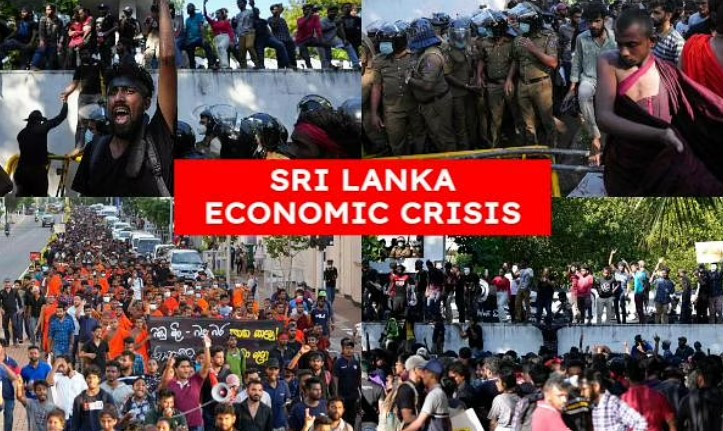Virendra Pandit
New Delhi: Acknowledging the grim situation in Sri Lanka, Prime Minister Ranil Wickremesinghe on Wednesday said in Parliament that the debt-ridden economy in the island country has completely collapsed.
After months of shortages of food, fuel, and electricity, Sri Lanka cannot even import oil because of a lack of foreign exchange.
“We are now facing a far more serious situation beyond the shortages of fuel, gas, electricity, and food. Our economy has completely collapsed. That is the most serious issue before us today.”
PM Wickremesinghe is also the South Asian country’s finance minister tasked with stabilizing the economy, floundering under heavy debts, lost tourism revenue, and other impacts from the pandemic and surging costs for commodities.
“Currently, the Ceylon Petroleum Corporation is burdened with a debt of USD 700 million,” he told lawmakers. “As a result, no country or organization in the world will provide fuel to us. They are even reluctant to provide fuel for cash,” he said, according to media reports.
The previous government, headed by Mahinda Rajapakse, had failed to act in time to turn the situation around as Sri Lanka’s foreign reserves dwindled. “If steps had at least been taken to slow down the collapse of the economy at the beginning, we would not be facing this difficult situation today. But we lost out on this opportunity. We are now seeing signs of a possible fall to rock bottom,” he said.
The Indian Ocean country has been muddling through, mainly supported by USD 4 billion in credit lines from neighboring India. But, Wickremesinghe said, New Delhi could not keep Colombo afloat for too long.
The crisis-ridden country had, in April, suspended repayment of USD 7 billion in foreign debt due for repayment this year, pending the outcome of negotiations with the International Monetary Fund (IMF) on a rescue package. It must pay USD 5 billion on average per annum until 2026.
Sri Lanka is burdened with foreign debt amounting to over USD 56 billion.
The foreign currency crisis, caused by the collapse of Sri Lankan tourism and the inability of jobless expatriate workers to remit home money because of the pandemic in 2020 and 2021, resulted in massive shortages forcing people to stand in long queues to buy essentials, including fuel, cooking gas, and medicine.

